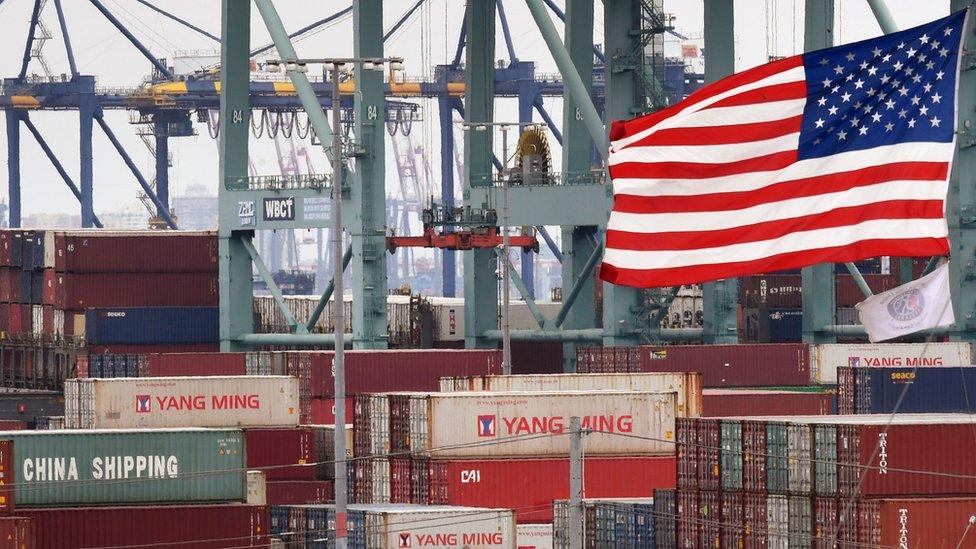Trade war: What you need to know about US-China talks
- Published
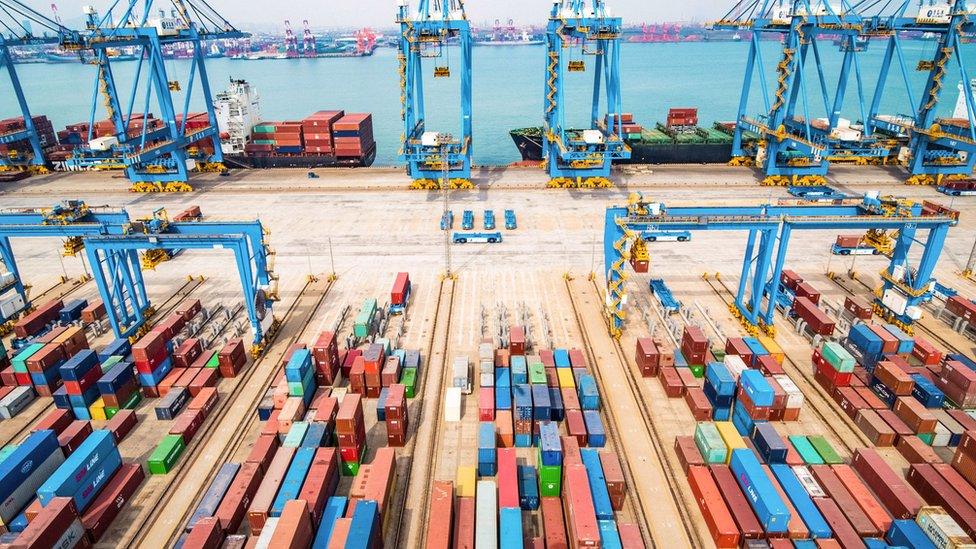
The US and China are due to begin a fresh round of talks in Beijing on Tuesday as they edge closer to resolving their damaging trade dispute.
The discussions will be led by US Trade Representative Robert Lighthizer and Chinese Vice Premier Liu He.
Talks have dragged on for months, with both sides struggling to agree on key issues.
The trade war has hurt the economy and challenged the multilateral system that has governed world trade for decades.
There has been cautious optimism surrounding the talks in recent months but also a sense that both sides remain divided on some points.
How did we get here?
The US, which accuses China of unfair trading practices, imposed tariffs on $250bn (£193.2bn) worth of Chinese products last year.
Beijing has retaliated with duties on $110bn worth of American products.
Tariffs on $200bn worth of Chinese goods were due to more than double at the start of the year, rising from 10% to 25%.
But both countries agreed to suspend tit-for-tat tariffs after they struck a truce in December, and began negotiations to work towards a deal.
US President Donald Trump recently said the US and China had agreed on "a lot of the most difficult points" but that "we have some ways to go".
What are the sticking points?
Sticking points in negotiations in recent months have included how a deal would be enforced, issues around intellectual property protection, and how fast to roll back tariffs.
Gary Hufbauer from the Peterson Institute for International Economics in Washington said enforcement was a crucial issue, but remained optimistic about the prospect of a deal.
"China will make lots of promises, the US remains sceptical on implementation," he said.
Still, he expects a deal to be announced by mid-May. The latest round of talks, external are expected to be followed by further negotiations in Washington on 8 May.
The US accuses China of stealing intellectual property and wants Beijing to make changes to its economic policies, which it says unfairly favour domestic companies through subsidies. It also wants China to buy more US goods to rein in a lofty trade deficit.
Mr Xi addressed some of these concerns last week at the Belt and Road forum in Beijing ahead of the trade talks.
He said China would boost efforts to secure intellectual property protection, increase imports of goods and services and ensure a fair trading environment for firms.
But what makes trade negotiations particularly difficult to resolve is the fact they are part of a broader power struggle between the world's two largest economies.
China's growing influence has put many Western governments - and particularly the US on the defensive. Some in China see the trade war as part of US efforts to curb its rise.
Against this backdrop, there is a view that the trade deal will not put an end to a US-China rivalry, which is already playing out in the technology sector.
What's at stake?
The trade war is already having an impact on the world economy.
International Monetary Fund chief economist Gita Gopinath said the escalation of US-China trade tensions, external was one factor that had contributed to a "significantly weakened global expansion, especially in the second half of 2018." The IMF cut its growth forecast for this year by 0.2 percentage points to 3.3%.
The Organisation for Economic Cooperation and Development (OECD) also said, external tariffs imposed by the US and China last year had slowed economic growth in the world's two largest economies.
Beyond the tangible economic fallout, some fear the trade war is challenging the multilateral system which has governed global trade for decades, including through the World Trade Organisation (WTO).
"The system is already fragile. An all out trade war, in which both sides break their WTO commitments, will be very damaging," Mr Hufbauer said.
- Published22 April 2019
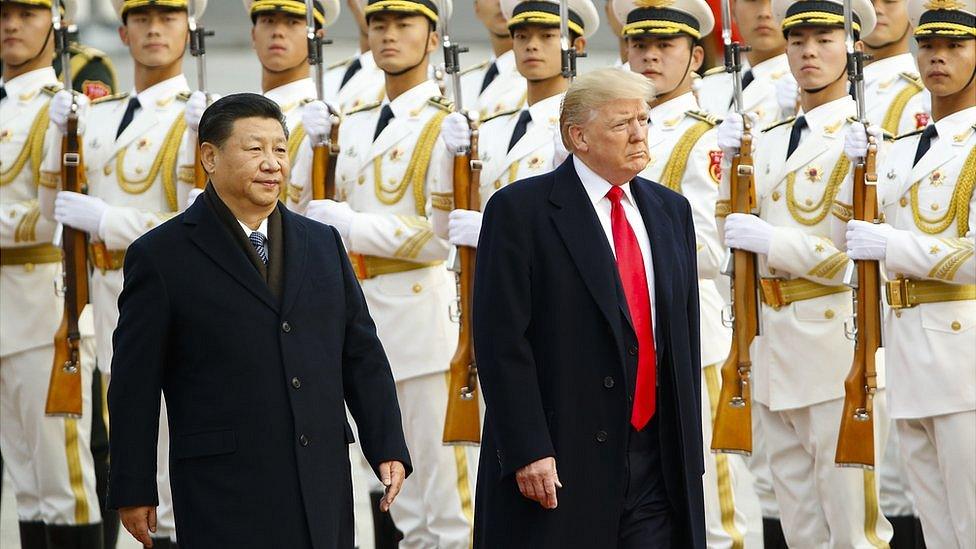
- Published26 October 2018
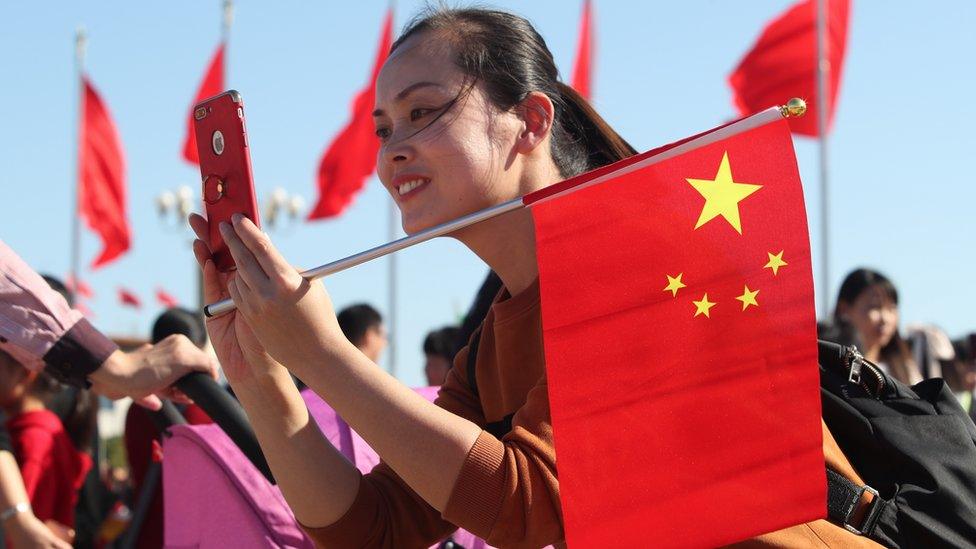
- Published18 September 2018
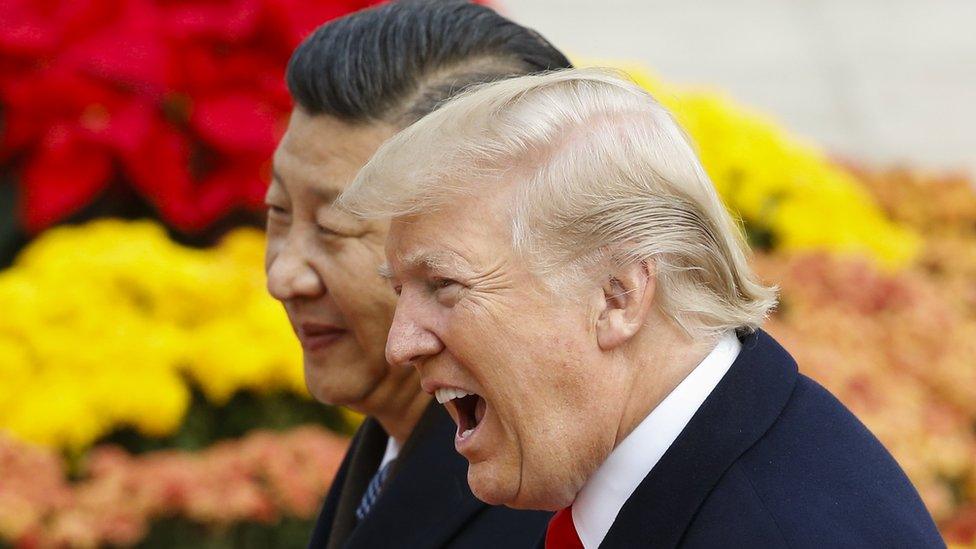
- Published16 January 2020
